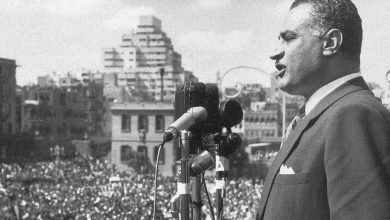Who governs Yemeni foreign policy?


Written by: Salah Al-Sakladi
SMA NEWS – Aden The Capital
The visit of Yemeni Foreign Minister Ahmed bin Mubarak to the Emirates – which was announced by the Saudi newspaper Al-Sharq Al-Awsat – confirms the opposite of what the statements of a number of Yemeni government figures (the government of Moein Abdul-Malik) say, that the UAE is acting as an occupying state in Yemen and must be expelled from the coalition.
This visit, which bin Mubarak is scheduled to make on Tuesday, according to the Al-Sharq Al-Awsat, as well as the statements he made two days ago and praises the Emirati role in Yemen and the strength of the relations between the two countries – according to his expression – confirm that what is said about the statements of a number of symbols in the authority and the parties affiliated with it, is something, and what the Foreign Ministry says is something else.
Also, Bin Mubarak’s statements about the UAE are completely inconsistent with the statements made by former Foreign Minister Mohammad Al-Hadrami, who was strongly against the Emirates and the forces affiliated with it, especially in the south, as he stated this repeatedly, including his controversial statements in this regard before the International Security Council.
These contradictory political positions of the Yemeni Foreign Ministry mean necessarily that there is a terrible confusion in the foreign policy of this government, and indicate that what governs the Yemeni diplomacy is not fixed principles, but rather party and personal, and external loyalties.
The former minister Al-Hadrami was expressing the position of the Islah party to a large extent more than he was expressing the position of his country, particularly with regard to the relationship with the Coalition countries. The Islah party, in the midst of the Gulf crisis that was burning during the Hadrami ministry, was strongly favored to Qatar and a seemingly clear bitter opponent of the UAE and hidden one to Saudi Arabia, while the statements and positions of Bin Mubarak – who is close to Riyadh – towards the Emirates express the Saudi position to the fullest extent, which rejects the opposing discourse. The UAE in Yemen and the discontent with the Qatari policy and the international Brotherhood movement, and the position – I mean bin Mubarak – expresses to some extent the position of President Hadi, who does not wish to escalate the rhetoric with the UAE and prefers to keep the lines of communication with everyone in the region.
There is no doubt that Bin Mubarak’s stance towards the UAE was shocking and disappointing to the hopes of many political and party forces within the legitimacy, the first of which is the Islah Party, as well as the bloc of hawks affiliated with President Hadi, “southerners of legitimacy.” However, these forces are confused about their affairs, according to Bin Mubarak, as they do not like his close positions with Emirates, but they desperately need his presence in a prominent position in the government to pass the Six-Territory State project, whose architect and his idea was shared with distinction in the Movenpick Hotel dialogue on 2014 and actively contributed to imposing it on those who do not want it, and it is a project that bears clear Saudi fingerprints and converges completely with the desire of the Islah party, which is eager to squeeze the Houthis into a closed geographical furrow called a region that has been removed in a clear sectarian targeting, and the south is split in half so that the party may in the future be able to dominate the North and the South together, in political targeting that cannot be mistaken by the eyes of the beholder from the gate of the elections, which the Islah believes will be in its interest by virtue of remaining a cohesive party that enjoys popular support and possesses a military force named under the name of the National Army, by analogy with the status of the rest of the parties that have become an apocalyptic fragment – or so the Islah’s plans present and future in North. In the south, the Islah is seen as the only party in the arena and the most organized one in the event that the party map remains unchanged and without the emergence of a strong southern political party or entity, which seems impossible in the foreseeable future, at least, as the Transitional Council, which is the main power in the South popularly and militarily, it will not accept turning into a mere party in the Yemeni arena, and the bet of Islah today and in the coming days to abort or limit the role of the Transitional Council depends on the Saudi position and the position of Ambassador Al Jaber in particular.








